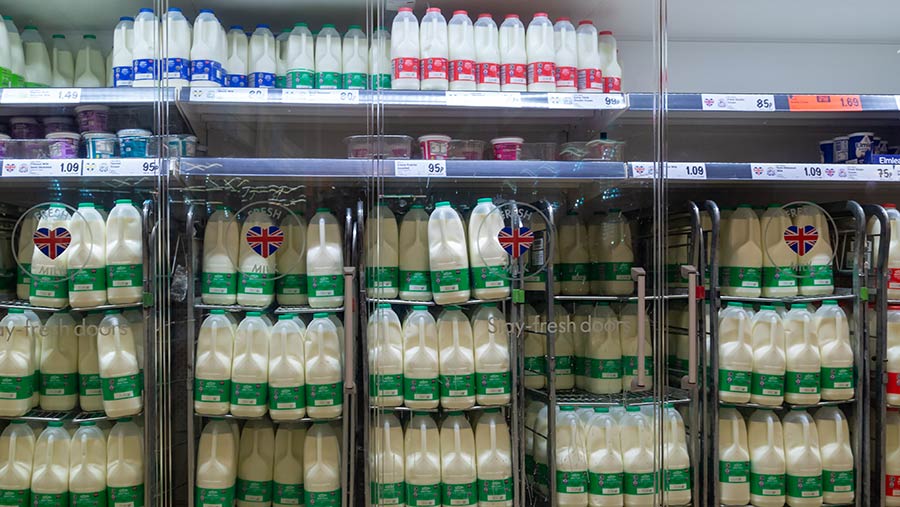Food Ethics Council highlights threats to dairy farmers
 © Gary L Hider/Adobe Stock
© Gary L Hider/Adobe Stock A power imbalance in favour of dairy processors, manufacturers, and retailers needs to be addressed to create a fairer dairy sector for all, according to the Food Ethics Council.
Following a three-year project looking into fairness in dairying, the Food Ethics Council found that funding alone is unlikely to be enough to save the sector, with many dairy farmers reportedly “on the brink”.
A report titled What needs to change in UK dairy has listed actions that different industry stakeholders should take to help create a fairer, more ethical sector.
See also: NFU Scotland pushing hard for statutory milk contracts
The top five actions needed were:
- Ending the sale of milk as a loss-leading product
- Raising the standards in processed dairy products
- Creating secure, fair, and flexible contracts
- Passing premiums on the shelf down to farmers
- Creating a regional relief milking labour pool.
Abi Williams, dairy project lead at the Food Ethics Council, said: “Many dairy farmers are currently ‘locked in’ to systems of production that are damaging to their own wellbeing, their animals, and the planet. This mode of farming – producing as much as possible for as little as possible – is obsolete.
“Funding will help, but it alone won’t save the sector. We need to unravel the constraints that farmers are operating under, so they have more headspace and more opportunities to transition to more ethical dairy.”
The Food Ethics Council has also made individual recommendations for each stakeholder group in the dairy sector to help create a more ethical and fairer dairy supply chain.
Food Ethics Council recommendations
Farmers
- Establish community-supported structures selling more dairy products direct to consumers locally
- Provide high-quality work experience
- Create a social media presence and hold open farm days
Landowners
- Provide smaller plots of land for new, smaller farm businesses
- Provide more favourable tenancy agreements for farming systems that will care for and regenerate the land in the long term
- Encourage collaboration between farmers across the land, supporting mixed and regenerative systems that are striving to be circular business models
Processors and manufacturers
- Create secure, fair, and flexible contracts
- Create regional relief milking labour pools
- Support a cross-industry effort to track and improve transparency of milk pricing
Retailers
- End the sale of milk as a loss-leading product
- Pass premiums on the shelf down to farmers using sustainable practices
- Design and promote products from a diversity of dairy systems with higher welfare and environmental standards
Food service
- Raise the standards in processed dairy products
Financial services
- Improve and align lending data and conditions with environmental goals
- Support business strategies that prioritise diversification over intensification
- Provide preferential loan terms to new entrant dairy farmers
Policymakers
- Call for the Competition and Markets Authority to review milk as a loss leader
- Review the shortage occupation list for farming with specific attention to dairy
- Ensure safe food regulations and associated administration are reasonable for smaller dairy processing facilities
- Public procurement contracts to support the local economy and ecology
- Funding for local dairy supply chain infrastructure, processing units and abattoirs
Education
- Gather knowledge from farmers to develop practical programmes that meet the needs of future farming, such as appropriate agricultural technologies, agroecology, and micro dairying
- Increase access to on-farm training and apprenticeships
